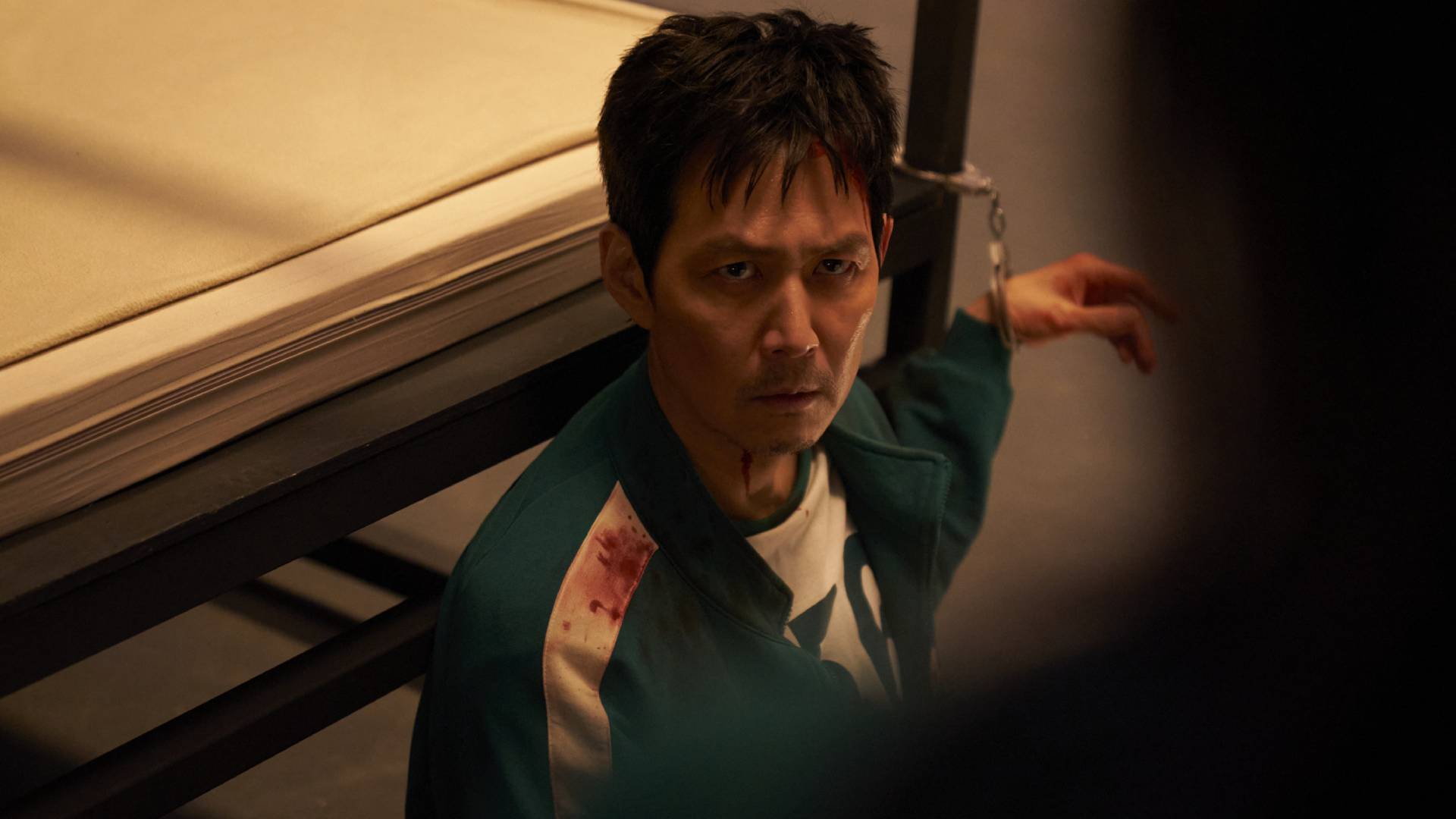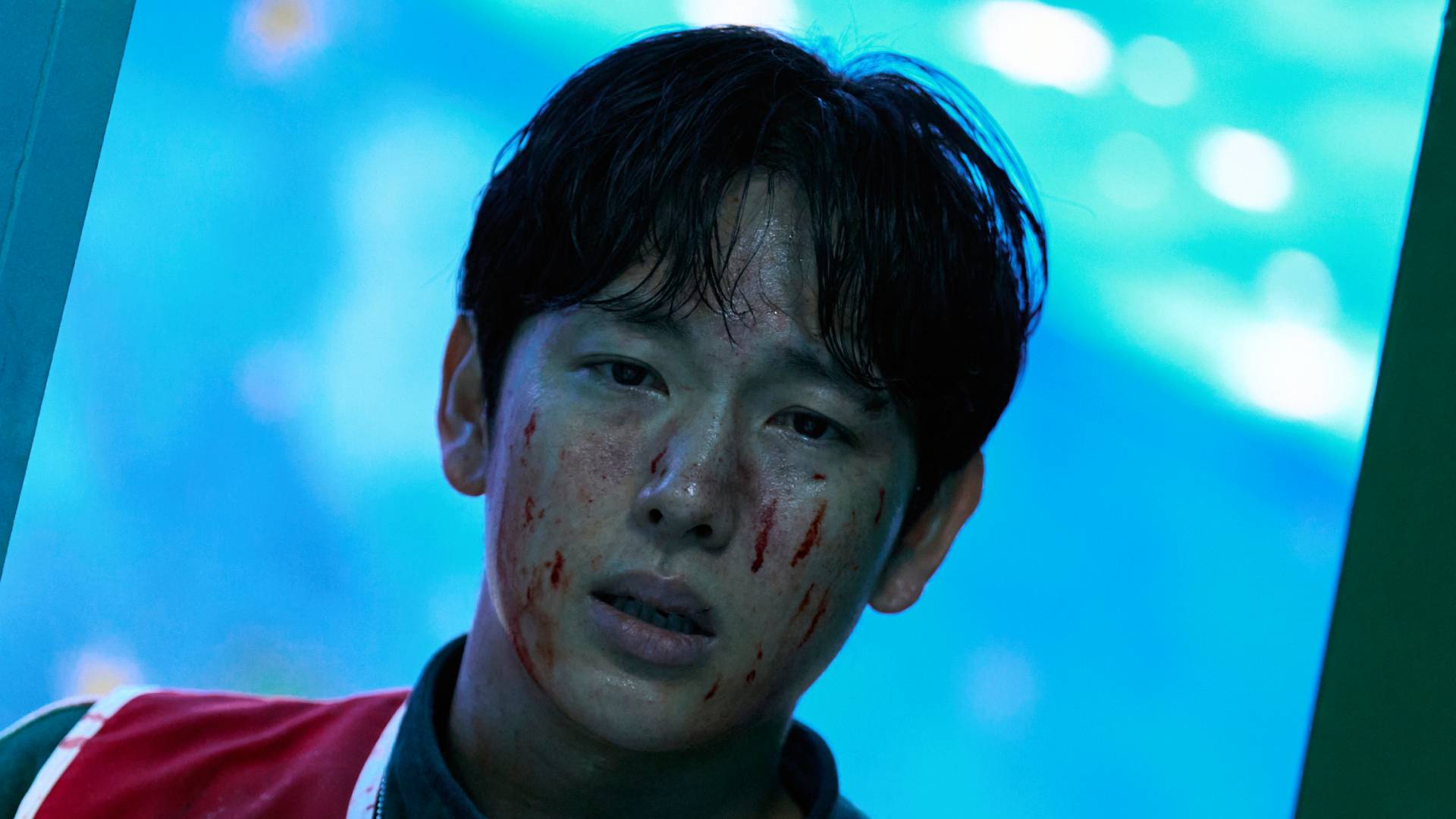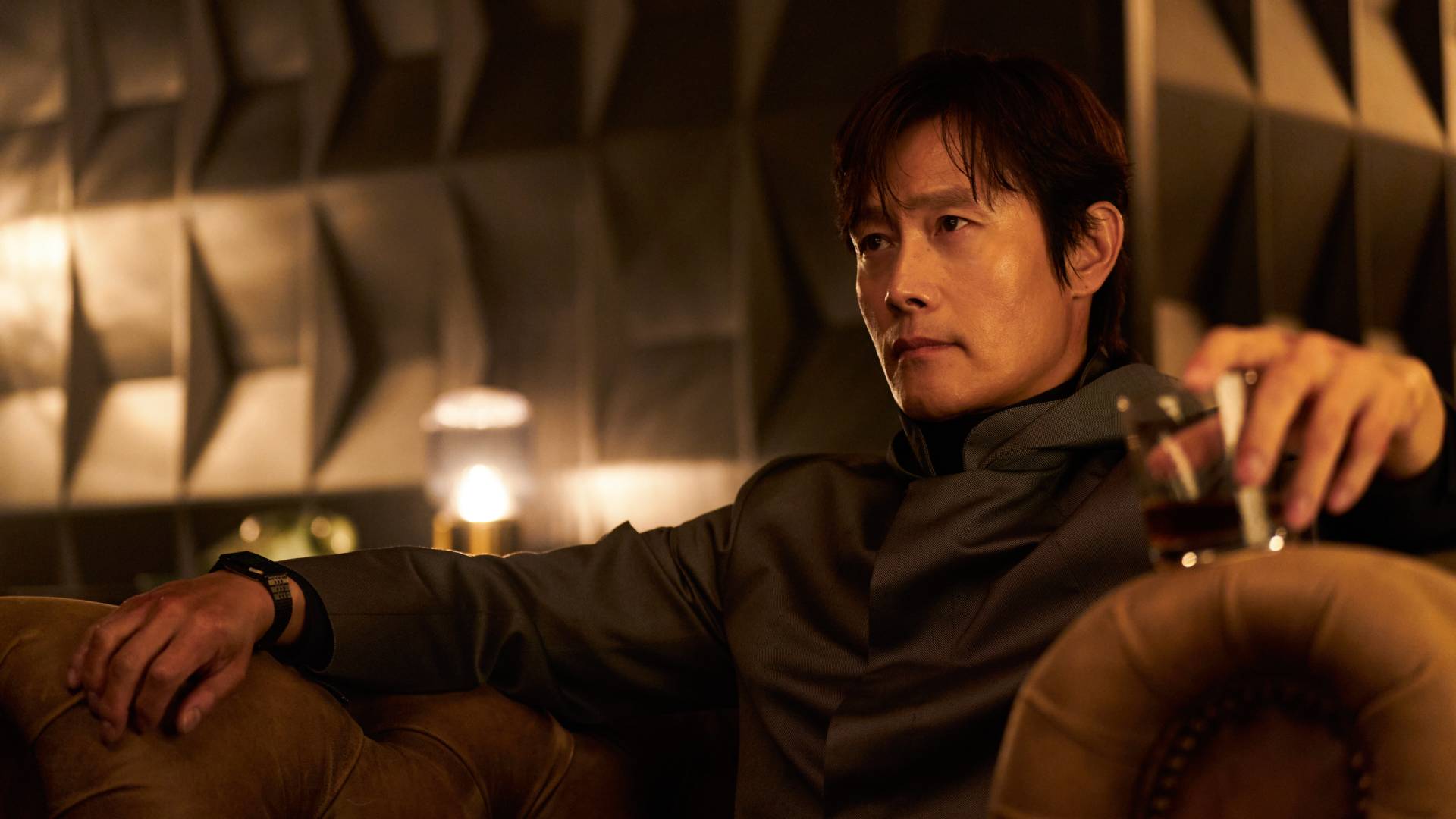Why you can trust GamesRadar+
Our experts review games, movies and tech over countless hours, so you can choose the best for you. Find out more about our reviews policy.
This review of Squid Game season 3 is spoiler-free.
It’s no secret that Squid Game is one of the biggest shows of all time and that, consequently, the show’s third and final season has a lot riding on it. For one thing, season 2 only came out six months ago, leaving us all on an agonizing cliffhanger. And with the end now in sight, fan anticipation is at a fever pitch, with theories and predictions flying.
Creator Hwang Dong-hyuk, then, has the unenviable task of wrapping everything up with a Squid Game-style pink bow and leaving the hundreds of millions of people who adore this show satisfied. One thinks cutting the umbrella from the dalgona cookie would be easier…
Season 3 won’t make every one of those ardent fans happy. But it’s a staggeringly excellent final season, one that recaptures the utter heartbreak of the latter half of season 1 with knockout performances from practically every single member of the cast, as well as a selection of games that left me literally able to feel my pulse in my neck. Squid Game season 3 can count itself a winner.
Ready Player 456

We pick up with Player 456 and the gang in the immediate aftermath of the ill-fated season 2 rebellion. The revolt wiped out the majority of the X voters, leaving Team O virtually unopposed. It also left Seong Gi-hun more traumatized than ever, overflowing with guilt and self-loathing.
Lee Jung-jae plays a sharper, wilder-eyed Gi-hun in season 3, unlike anything we’ve seen from Player 456 before. It’s a character transformation that really works, thanks to Lee’s strikingly evocative physicality. For the first half of the season, Gi-hun barely speaks, letting the ferocity of his glaring do the talking for him. When he’s not angry, he’s completely out of it, barely reacting to what’s going on around him. Long gone is the smiling, happy-go-lucky gambler we were introduced to way back in 2021. I really can’t praise Lee’s performance across all three seasons highly enough: transforming a character so completely is a serious challenge, and one that he makes look effortless.
FAST FACTS
Release date: June 27
Available on: Netflix
Showrunner: Hwang Dong-hyuk
Episodes: 6/6
As you’d expect, though, Gi-hun’s despair doesn’t last all season, and 456 eventually finds his fire again following a game-changing left turn. If you’ve seen the first teaser for the show, then you’ll know that Jun-hee (Jo Yu-ri) does indeed have her baby. The way the infant plays into the season is too significant to discuss here, but rest assured, it’s an incredibly bold swing – and one that I found devastatingly effective in the way it brings out the best and the worst in the remaining players, and the ingenious way it affects the story as the show goes on. The reality of having a newborn baby in the games massively amplifies the dystopian nightmare fuel the show is so adept at, especially in some more absurd moments, like watching a Pink Guard carefully feed the newborn a bottle of formula (why do they even have that on the island?)
Much of season 2 revolved around Gi-hun’s ideological battle with the Front Man (Lee Byung-hun), and season 3 picks up that baton once more. Except, this time, the battle is less up close and personal and more the Front Man observing Gi-hun’s decisions from a distance. The season suffers ever so slightly from there being less of a focus on this duo when their dynamic proved so fascinating in season 2; their much vaunted face-to-face meeting is also disappointingly short. However, Lee Byung-hun still manages to leave a major impression with his performance, even if you don’t see him without the mask all that often. What he does with a brief, dialogue-less flashback is breathtaking.
This switch in focus does allow the rest of the cast to shine, too – and shine they do. The surprise MVP of this season is Im Si-wan, who gives a visceral, intense performance as crypto YouTuber Myung-gi, a player who keeps his cards close to his chest in a way that reminded me of season 1 finalist Sang-woo. Roh Jae-won also comes into his own as a gleefully unhinged villain with Nam-gyu (not Nam-su, as Thanos disparagingly called him), while Lee David’s cowering Min-su also gets an intriguing plotline that allows him to move beyond the meek player he was before. Jo Yu-ri and Kang Ae-shim are also standouts as pregnant Jun-hee and doting mother Geum-ja, desperately portraying the absolute depth of hopelessness.
If there’s a weak link in the cast, it’s the VIPs, who make an unwelcome return following their widely panned appearance in season 1. They remain bewilderingly terrible, with wooden performances and unnatural dialogue (why are we talking about Marvel superheroes in the middle of a death game?) As far as cartoonishly evil villains go, though, they get the job done.
Let the games begin

Of course, we have to talk about those remaining three games. Episode 2, which revolves around a twisted version of Hide and Seek, is one of the show’s strongest ever. It’s an intense, heartbreaking hour of television that thrills and horrifies in equal measure. The Jump Rope game, which takes place across the third and fourth episodes, is pulse-poundingly tense. The final game, which I won’t spoil here, is genuinely difficult to watch – not because it’s particularly gory, but the sheer callousness and cruelty on display from the finalists is horrifying. It’s a dialogue-heavy game with little action (at first, anyway), and it’s an inspired choice for how it engages with the season’s themes on the nature of humanity.
A bold, fearless season of TV that affected me so deeply I sobbed
Production designer Chae Kyoung-sun excels once again in season 3: the games look stunning, the most unnerving blend of childhood whimsy and unrelenting brutality. You feel hemmed in and afraid in the maze of Hide and Seek, with its chilling, red handprints on the wall looking somewhere between a children’s painting and bloodied palms desperate to escape, and you feel the dread-inducing scale of the Jump Rope game with its sinister dolls on either side of a narrow bridge. The final game is darkly stark and brutal, the candy-colored gloss of the earlier rounds falling away for damaged, concrete structures and a black backdrop that contrasts eerily with the brightness of before.
On a craft level, the show is as solid as ever, too, with a score from Jung Jae-il that can turn soft and poignant to coax tears in the show’s saddest moments, or ratchet up the intensity when players are being stalked through the starry halls of the Hide and Seek maze or are jumping for their lives across that slender bridge. Similarly, the sound design by Kang Hye-young is haunting, from piercing, shrill screams in the distance of the maze to the heavy creak and groan of that swinging rope. The effect is total immersion in the games and the horrors they bring.
Game over

And then, of course, there’s the finale. Clocking in at a surprisingly lean 55-minutes (less without credits), it wastes no time in reaching its crushing conclusion. I won’t discuss it in detail, since that would be a huge spoiler. But I will say that what happens left me truly distraught – real tears were shed, for quite some time – but the way it all plays out feels like classic Squid Game. Remember the way Marbles made you feel like you’d been stabbed in the heart? Prepare for that all over again, but worse. The way the season addresses the show’s central questions about humanity and society under capitalism is also deeply moving, and very much open for interpretation. All I’ll say is, amid so much horror, there is still hope to be found.
Some plot strands are left unresolved, and some questions are left unanswered, presumably for a spin-off to pick up and run with later down the line. I didn’t find this frustrating. There’s nothing wrong with a slightly open ending, after all – one you can mull over long after the credits roll, and I suspect I will be thinking about this season for a while yet. Still, detective Jun-ho’s (Wi Ha-joon) plot in particular felt a little underserved, as it did in season 2, but he remains a compelling character.
Creator Hwang Dong-hyuk’s final season isn’t flawless, but then nothing is. What it is, though, is a bold, fearless season of TV that affected me so deeply I sobbed for the characters as if I were truly in mourning. That’s no easy feat, and it’s a testament to Hwang’s exceptional talent for crafting characters who feel like beloved friends, and his skill at constructing storylines that can shatter you, but keep you coming back for more. I was skeptical about subsequent seasons of Squid Game when season 1 was so superlative, but both installments have won me over so completely that I couldn’t imagine the series existing without them.
If this truly is the end of Squid Game, and no surprise season 4 (or that rumored spin-off) lurks on the horizon, then Hwang and his astonishing cast can take a bow knowing they made one of the greatest Netflix shows ever – if not one of the greatest shows ever, full stop. Game over indeed.
For more on the show, see our spoiler-filled breakdowns of the Squid Game season 3 ending explained and if Squid Game season 3 sets up a spin-off.
You can also fill out your watchlist with our guide to the best Netflix shows and the most exciting upcoming TV shows left of the year.



